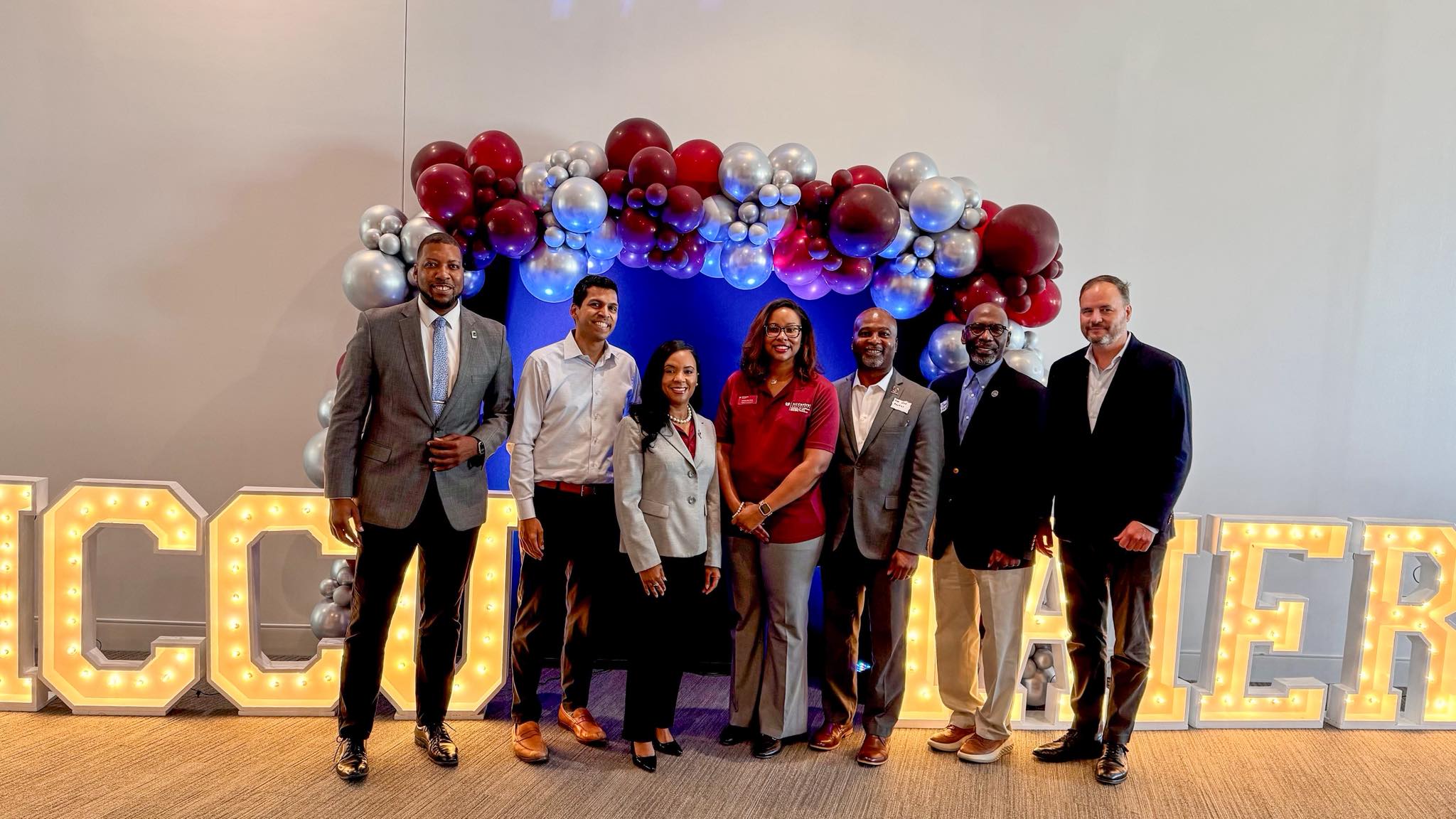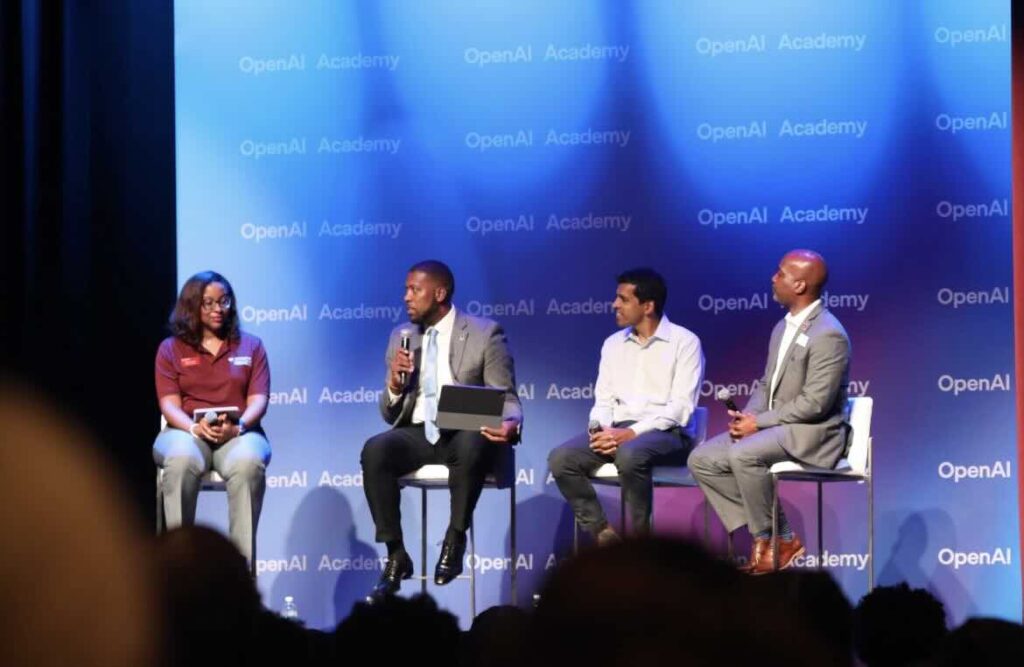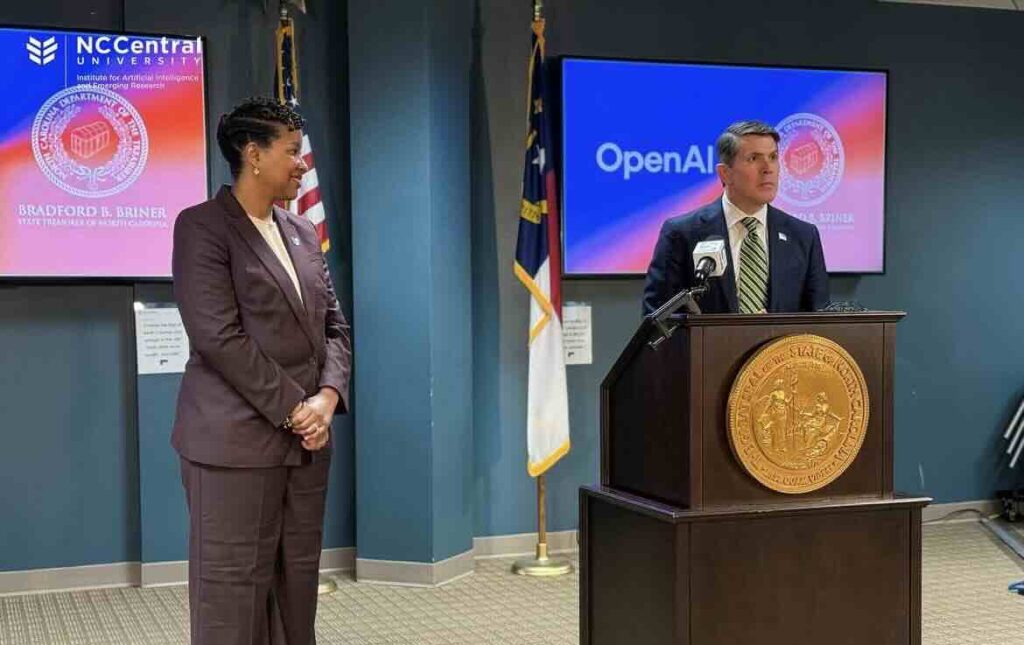By Jordan Meadows
Staff Writer
Last week, North Carolina Central University (NCCU) made history by hosting the IAIER × OpenAI Academy Summit: HBCUs Leading the Future—the first national AI summit ever held at a Historically Black College or University.
Held on NCCU’s campus, the event marked a groundbreaking collaboration between NCCU’s Institute for Artificial Intelligence and Emerging Research (IAIER) and OpenAI, the creator of ChatGPT. The summit spotlighted the increasingly vital role of HBCUs in shaping the future of artificial intelligence, education, workforce development, and ethical innovation in technology.
The event brought together a powerful coalition of voices from across academia, government, industry, and the local community.
Among the leaders present were NCCU Chancellor Dr. Karrie G. Dixon, ECSU Chancellor S. Keith Hargrove Sr., Representative Zack Hawkins, Dr. Siobhan Day Grady, and Ronnie Chatterji, Chief Economist at OpenAI and former Acting Deputy Director of the National Economic Council under the Biden administration.
North Carolina Governor Josh Stein contributed remarks via a virtual address, while Durham Mayor Leonardo Williams participated in a panel discussion that connected the summit’s mission to the spirit of innovation and resilience embedded in the local community.
"This summit reflects what Durham stands for: inclusive progress and innovation that centers people and purpose,” Mayor Williams said. “It’s not just about what AI can do—but who it can empower.”
Dr. Siobhan Day Grady, founding director of IAIER, framed the summit’s larger purpose by emphasizing that “this partnership highlights NCCU’s commitment to innovation. Together with OpenAI, we are breaking barriers and ensuring access to AI’s transformative potential.”
The summit featured immersive programming throughout the day, with students from NCCU and other HBCUs—including North Carolina A&T, Shaw University, and Fayetteville State University—participating in hands-on workshops, developer labs, and in-depth discussions on the future of AI, the importance of student voices in innovation, and public-good applications of artificial intelligence.
In a session titled “AI for Older Adults,” aging expert Jeffery Rose led a conversation exploring how AI can ethically and effectively support older populations. Drawing on his experience with life-plan communities and age-tech startups, Rose helped illuminate how inclusive AI design can improve quality of life across generations.
In one of the summit’s most engaging sessions, Ronnie Chatterji and Representative Zack Hawkins discussed the future of AI policy, exploring how national, state, and local governments can align efforts to ensure AI is developed responsibly and equitably. Chatterji also spoke directly to students, encouraging them to make the most of their college years.
“The greatest advantage students have today is the ability to learn and experiment,” he said. “Use your time in school to explore your interests, discover your strengths, and connect with professors across disciplines. Aligning what you’re good at with what you enjoy will set you up for success, whether in AI or another field.”
Shantel Riddick, a doctoral student in integrated biosciences, described the experience as transformative.
“It deepened my understanding of AI workflows, enhanced my research, and sparked creativity,” she said. “The OpenAI Academy workshop also reinforced integrity-driven AI use—skills I’ll carry throughout my academic career.”
The integration of AI is being realized through the IAIER, launched in January 2025 and backed by a $1 million grant from Google.org. The institute is currently developing a 5,000-square-foot facility that will serve as a hub for interdisciplinary research and learning.
Over its first two years, IAIER aims to engage more than 200 students in innovative AI training rooted in ethics and community impact. The institute’s mission is supported by a growing list of high-profile partners, including OpenAI, Cisco, IBM, FICO, and the Museum of Life + Science. Chancellor Dixon described the investment as “transformative,” noting that it will equip students “with the tools and knowledge to lead the AI field while developing technologies that benefit society at large.”
Beyond the summit, NCCU students will continue to benefit from a lasting partnership with OpenAI. Through the OpenAI Academy, students have access to a growing catalog of virtual and in-person workshops focused on building AI literacy and practical skills.
In a separate but related initiative, the North Carolina State Treasurer’s Office, led by State Treasurer Brad Briner, recently completed a 12-week pilot project with OpenAI. The experiment enabled OpenAI to access publicly available data from state agencies to explore how AI could enhance efficiency and public services.
"What we've learned first and perhaps unsurprisingly, is that this technology saves a material amount of time," said Briner.
Early results showed that the use of ChatGPT helped identify warning signs in financial audits, streamline analysis of financial statements, and even assist with locating unclaimed property. The productivity boost was estimated at around 10% for employees in participating divisions. The best part? The program came at no cost to the state.
“We think partnerships like this are going to show the benefits of technology to serve all humanity,” said Chatterji, who previously ran for state treasurer himself.
OpenAI’s presence in North Carolina is already making an impact, with an estimated 1.1 million residents—1 in 10 North Carolinians—using ChatGPT weekly. The version used in state operations is even more advanced than the public model, allowing for deeper insights and faster, more accurate outputs.



